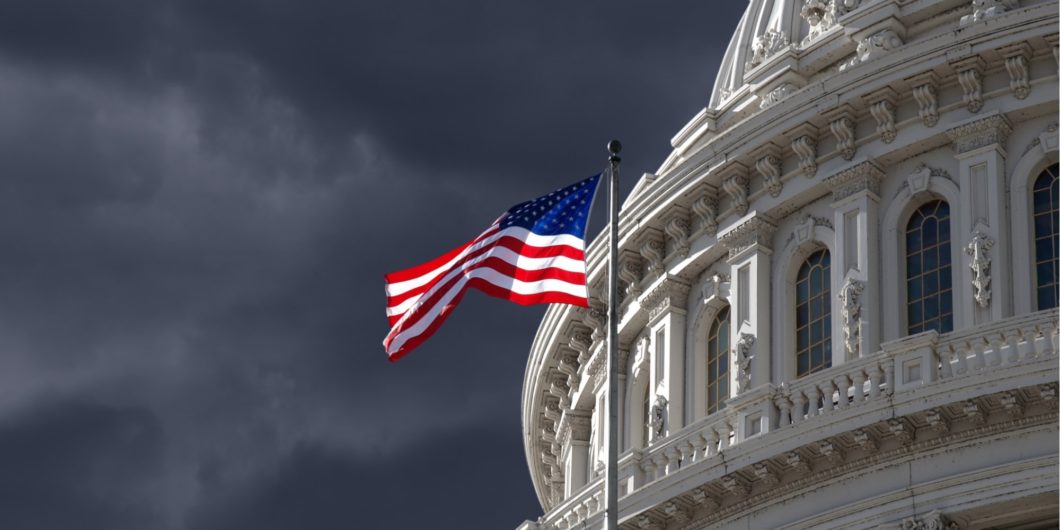In times like these, critics of progress gain in relevance and interest: perhaps they’re on to something.
Christopher Lasch, Citizenship, and Looney Tunes Episode 2020
If you’ve been clubbed enough lately for being on the wrong side of hysteria, you might find yourself longing for the days when all you had to worry about was being on the wrong side of history—repellent and nonsensical as that phrase is.
It was a favorite of President Obama’s, and he was certain what the right side was. President Clinton also used the phrase as if he too believed that it was morning in America, thanks perhaps to President Reagan’s relegating tyranny to the “ash-heap of history.” History, apparently, is not just a line capable of agency and judgment. It is large and contains multitudes.
And now here we are! Boats are still being lifted on rising tides, except now we call them “sea levels.” Federal programs still outpace our ability to fund them, and we’re no longer producing the children to help discharge the mounting debts. Moreover, there abides a widespread obtuseness, especially in The Swamp, toward natural limits. Energy will always be cheap, abundant, and readily-available. It can’t be that hard to be a net exporter of oil—industrial capitalism’s most indispensable commodity. Topsoil and groundwater meanwhile? What are they good for besides supporting life? They don’t need friends in D.C. I leave aside our reckless drawdown of moral capital funded by the considerable labors of the frugal dead so that the profligate living can spend it like wastrels.
And yet we stick dutifully to the playbook, replacing right conduct with mostly peaceful protests, deflating the currency, and suppressing interest rates in saecula saeculorum. When Progress is the State religion, all problems get solved or get put on the schedule. Once you’ve revised your doctrine of Man—he doesn’t need grace, just some positive reinforcement—impediments become mere challenges in search of improved techniques, which STEM is poised to provide. The hierophantic Managers have figured out how to run history—now that we’re all on the right side of it.
Or are we at the end of it? Because that’s a different matter altogether. A line—much like a false dilemma—has only two sides. But to be at the end of the line, like a period at the end of a sentence—that’s not a pause; it’s a full stop. And a full stop is bad news for progress. As John Crowe Ransom noted long ago,
all the true progressivists intend to have a program so elastic that they can always propose new worlds to conquer. If his Utopia were practicable really, and if the progressivist should secure it, he would then have to defend it from further progress, which would mean his transformation from a progressivist into a conservative. Which is unthinkable.
For a remark that’s almost 100 years old it’s pretty timely. Think of all the thuggish ideologues on college campuses who, having been granted freedom of speech, are now hell-bent on preventing further freedom. They might wish to rethink this strategy of conserving what they’ve got; someone might accuse them of being conservatives.
But what I would really like to know is this: where in relation to this thing “history”—which in keeping with the corybantic cult of progress is apparently best conceived of as a line moving toward Edward Bellamy’s covered sidewalks and a world so perfect that no one needs to be good—where in relation to this thing “history” do we stand? So manifestly does “history” not sharpen into focus and clarity in the carious mouths of politicians or on the dissembling lips of tenured busybodies that an ordinary man might feel as if he’s become Elmer Fudd in hunting togs: so confused that he doesn’t even know what season it is—not to mention suddenly aware that he’s in a Looney Tunes cartoon.
For how is it possible, even if you’re on the right side or at the end of history, to wake up in December of 2020 and think otherwise? After decades of debt masquerading as wealth, after foreign adventures to “rid the world” of its most abiding property, after such exercises in fiscal modesty as “free” tuition and MRIs for social wards and the hocus pocus of making student loans disappear—even as the national debt inches up on 30 trillion—how is it possible after all this to wake up in December of 2020 and not believe that it’s actually twilight in America? When history is supposed to be a line moving across the graph from the bottom left to the top right, how is this thing we’re all at the end of not in fact the end of all things?
Let’s be clear about the situation:
The leader of a populist movement that Christopher Lasch predicted would follow once the elites had revolted won’t, for whatever reason, concede the general election. Perhaps this is because he’s a narcissist or a demagogue or both. Perhaps it’s because like many other people he can’t really believe that a Basement Hologram engineered by the DNC actually won the presidency.
This Spectre-Elect’s right-hand woman is suddenly a party darling, even though not long ago she was so unpopular among Democrats that her time in the primaries showed about as much life as the average death throe of a fricasseeing wabbit.
This Overnight Sensation will almost certainly be the POTUS sometime in the next four years—unless … wait for it … unless a lawyer of equal unpopularity can wipe away the rivulets of hair dye from his cheeks and prove in a court of law that we are all victims of widespread voter fraud—fraud that would make the cooping in Edgar Allan Poe’s Baltimore of 1849 look like hopscotch, by the way—and do so in a timespan too short for even a Tom Brady fourth-quarter touchdown drive.
There’s more. It turns out that viruses have magical properties: they can confer immense power on state Governors. The Diversity Credentials of these Governors are so impressive that they knew exactly how the free members of every family in every little hamlet of every state should congregate for Thanksgiving: uniformly, it turns out, in fear and trembling. A single unitary standard imposed upon a host of variegated circumstances—that is the last pinprick of policy light visible in a technocrat’s head right before it goes permanently dark, no doubt from following the changing science.
Viruses can likewise elevate to new heights of smugness the uniformly-minded but certifiably diverse members of The New York Times newsroom (speaking of revolting elites), who in addition to telling us what to think have offered, unasked, to rewrite a year that occurred just over four centuries ago. I say nothing of how NPR’s Preciousness Quotient has skyrocketed since March. A bloke might comment on television news programs, except he’d have to watch them, and this bloke doesn’t.
What little I have just said about the cartoon of 2020 adds up to a kind of hysteria I can’t manage to get on the right side of, not even on the heels of “the most important election of our lifetime,” which in fact is only the latest election in our lifetime, occurring in an unforgiving year amid rampant unforgiveness and the unhelpful hyperboles of hysteria.
And, for good measure, let’s include this startling discovery: it turns out that to be a woman on the SCOTUS you have to be the right kind of woman. You must prefer yourself to your child. You must also be on the right side of Catholicism.
Lasch, aforementioned, was a bit astonished that anyone living at the end of the 20th century could still believe in progress. He thought the century’s big wars had fairly well shattered any such confidence in that “arc of history” that Mr. Obama believed we could lay our hands on “and bend … once more toward the hope of a better day.” Don’t get me wrong: any red-blooded American might hope for a better day. I hope for a better day. But the things we lay our hands on should actually exist, like two-by-fours and welding rods and the grocery lists of the shut-ins next door.
Lasch likewise doubted that we could put our trust in princes while at the same time surrendering the integrity and authority of families and local communities. Of course he was traduced for this—it was so much post-Moynihan “blaming the victim”—but the years since his death have not overturned his judgment. And don’t forget that we did get the populist phenomenon he foresaw.
(I’m disinclined to sing its leader’s praises, but I will note in passing that Mr. Trump is the first president since Mr. Eisenhower not to get us into another foreign adventure, a fact Mr. Trump’s detractors won’t even admit grudgingly—and in many cases actually bemoan.)
What little I have just said about the cartoon of 2020 adds up to a kind of hysteria I can’t manage to get on the right side of, not even on the heels of “the most important election of our lifetime,” which in fact is only the latest election in our lifetime, occurring in an unforgiving year amid rampant unforgiveness and the unhelpful hyperboles of hysteria.
No election should ask of us such ridiculous questions as “are you on the right side of history?” The Manichean oversimplification of national politics befits no creature endowed with the ability to walk upright and contemplate the heavens. That way hysteria lies.
This perishing Republic is needful of much. To each his list. I’ll suggest two things:
We need statesmen, writers, public figures, and ordinary citizens who can actually speak. When confronted with the blather of a Kendi or a DiAngelo and their sophomoric acolytes, men and women should be able to speak—and I mean speak in the calm assured manner of, say, the heroine of Ludlow Castle who dismantles Comus and his attempted outrage upon a mystery. But remember: such wisdom as hers comes of temperance and chastity, which is to say of virtue. “Thou art not fit to hear thyself convinc’t,” she tells the Lord of Misrule,
Yet should I try, the uncontrolled worth
Of this pure cause would kindle my rapt spirits
To such a flame of sacred vehemence,
That dumb things would be mov’d to sympathize,
And the brute Earth would lend her nerves, and shake,
Till all thy magic structures rear’d so high,
Were shattered into heaps o’er thy false head.
(And make no mistake: the natural order will at some point lend her nerves. Nature works in her own way; she doesn’t give a damn what the Identity Police think.)
Second, we need a properly diminished regard for the chief executive. Did that regard increase during the last four years, when Mr. Trump made almost everything a referendum on his own personality? I’m not a careful enough student of the office to say for sure, but I expect that this is so. And, if so, that inflated regard is not helpful, especially when it is exacerbated by media who are committed to the loud side of hysteria. As the Right and Left lionize and demonize in their predictable ways, think of Emerson: “The power men possess to annoy me, I give them by a weak curiosity.” Live not by weak curiosity but by the muscular virtue that brings Comus to naught. And bear in mind this important difference between Emerson’s moment and our own: the power others have over us we give them by a weak curiosity concerning the very means of their bluster: to Facebook, Instagram, Twitter, and the variety shows masquerading as televised news. These are parasites that we ourselves play host to. Is our own death the only means of killing off these tapeworms, or is there a medicament at hand among the available virtues?
I don’t believe I’m saying anything more than what many others have already said: our desire for an Energetic Executive (to use Publius’s term) is misplaced, and at any rate it appears we’re getting an executive who doesn’t have much energy left in him, even though his record as a warmonger and corporatist is pretty clear. Our task remains unchanged: neither to underestimate the harm nor to overestimate the good that anyone in power can do.
And in the meantime we must enact, where each of us is, the daily offices of citizenship, which require much more of us than mere voting does. Those quotidian tasks answer more fully to the hysterical demand to “do your civic duty.” The stickers we get coming out of the ballot box should read “I just did the least I could do.”
We need what we’ve always needed: neighborliness, goodness, hope, restraint, strong communities and families, and a conception of family not subject to endless technocratic revision. Assuming the Pickett’s Charge of the My Pillow guy fails, I’ll be heading into 2021 with no expectations for the Basement Hologram or the Professional Offense-Taker poised to succeed him. There are other duties to perform, which might include such acts of civil disobedience as the proper disregard for limits: for example, celebrating the holidays with as many friends and kinfolk as you please.



